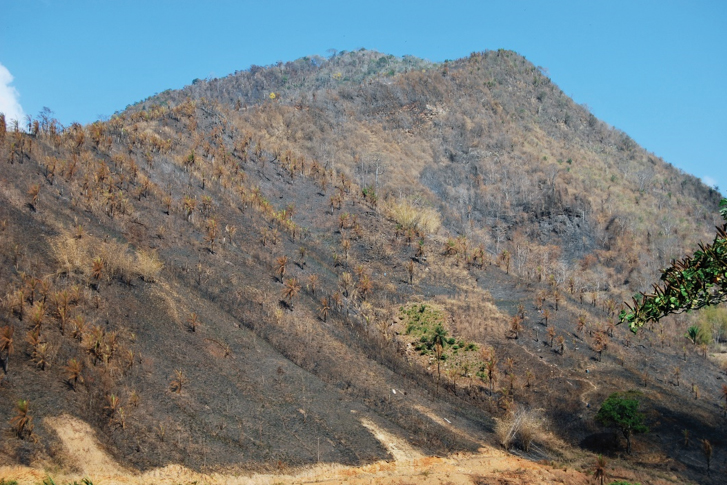Addressing the challenges of climate change thorugh disastres risk management will be the focus of a two-day meeting hosted by INTRA-ACP APP, and project funded by the European Union.

“Climate has changed; climate will change and climate demands change”, said Michael Taylor, a physicist at a Climate Studies Group in the Caribbean in 2012. He was right. Climate change doesn’t just mean a few more hot days at the beach or a greater need for air conditioning. In the Caribbean, climate change means water shortages, extreme weather events, rising sea levels and so much more. In short, it means an overall stress on our environment and economy, especially when it comes to agriculture. Therefore, action is required to address these changes.
The Caribbean Action under the Agricultural Policy Programme (APP), funded by the 10th European Development Fund (EDF), is a project aimed at addressing the development needs of smallholder agriculture in order to reduce poverty and increase food and nutrition security in the Region. The programme addresses issues such as, strong policy, new and improved technologies, marketing support and strengthening value chains, all in support of the agriculture industry. APP is executed by the European Union (EU), with support of the Inter-American Institute for Cooperation on Agriculture (IICA).
Clearly, these are all very important initiatives. However, if the issue of climate change is not addressed it could affect the entire industry to the end that there isn’t enough local food to even demand value chains, marketing and the like.
In light of this reality, the CARICOM Secretariat will host a Regional Validation Meeting on Strengthening the Integration of Climate Change and Disaster Risk Management Considerations in the Agriculture Sector.
The meeting will take place on September 22nd and 23rd in Saint Lucia at the Bay Gardens Inn, where at least 25 participants from around the Caribbean will gather. Attendees will include senior officials from Ministries of Agriculture, National Hydro-meteorological, Environmental and Climate Change Focal Points and Coordinators and representatives from the Regional Barbados-based Caribbean Institute for Meteorology and Hydrology (CIMH) and the Caribbean Disaster Emergency Management Agency (CDEMA).
The main goal of the forum is to share the outcomes of a Consultancy that was undertaken as part of the APP. The purpose of the consultancy was to build capacity to strengthen the integration of disaster risk management and climate change considerations into the agricultural sector.
Since it is clear that the climate is changing, the APP recognized the need to be proactive in the approach to challenges that result from climate change, rather than reactive. They engaged a Drought Management Specialist, an Agriculture Economist and a Disaster Risk Management Specialist to create an Audit Instrument that assesses the extent to which planning within an agricultural sector integrates disaster risk management, including factors that result from climate change. The experts were tasked with creating that tool and testing it to see if it was indeed effective.
Secondly, with a focus on Grenada and Saint Lucia, the experts were asked to build Drought Hazard Annexes to agricultural risk management plans that were already in place in those countries. The drought plans include preparedness actions for drought risk management such as early warning systems, contingency water supply plans and risk transfer mechanisms; drought monitoring and reporting actions such as measurement and analysis of precipitation, soil moisture levels and water storage levels in dams and reservoirs and; drought response actions such as water supply management, including rationing and public awareness and activation of drought risk transfer plans.
Over the course of the meeting, participants will review findings and share ideas on how best to improve the audit tool and the drought plans. They will discuss how to standardize them for use across the Region and how to ensure that processes are sustainable over time. They will identify resource requirements that need to be in place to make the tool and plans work as they were designed, and assign actions for follow up.
All of this will be done with the end goal in mind of moving past a crisis based response to climate change and instead, strengthening the Caribbean’s readiness to respond to and recover from environmental events caused by climate change.
More information:











